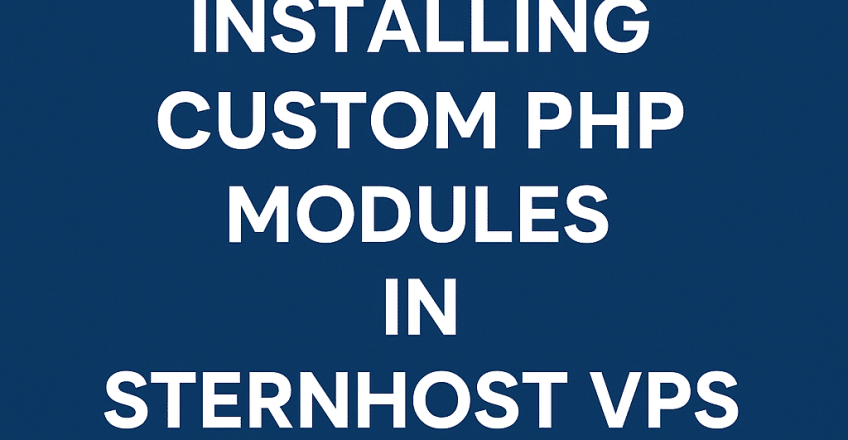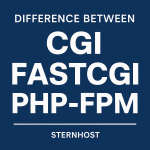
When running a website or web application, you may need specific PHP modules to enhance functionality. For example, applications like WordPress, Laravel, or Magento often require modules like cURL, GD, mbstring, or ionCube Loader. With Sternhost VPS hosting, you have full root access, which gives you the flexibility to install and configure any custom PHP modules your project requires.
In this guide, we’ll walk you through the process of installing custom PHP modules on your Sternhost VPS, ensuring your server is optimized for your website’s unique needs.
Step 1: Connect to Your Sternhost VPS
First, log into your VPS via SSH. On your local machine, run:
Replace your-server-ip with your Sternhost VPS IP address (found in your Sternhost Client Portal).
Step 2: Update Your Server
Before installing new modules, update your package manager to ensure you have the latest versions:
For Ubuntu/Debian:
For CentOS/AlmaLinux:
Step 3: Install PHP and Common Modules
If PHP is already installed on your Sternhost VPS, you can skip this. Otherwise, install PHP and essential modules.
For Ubuntu/Debian:
For CentOS/AlmaLinux:
Step 4: Install Custom PHP Modules
To add specific or custom modules:
-
Check available modules
-
Install a module
-
For PECL extensions (e.g., ionCube, xdebug):
Enable the module by editing the php.ini file:
Add the line:
Restart Apache or Nginx + PHP-FPM:
or
Step 5: Verify Installation
Check if the module is installed correctly:
Or create a phpinfo.php file in your website’s root directory:
Visit yourdomain.com/phpinfo.php and confirm the module is enabled.
Benefits of Installing Custom PHP Modules on Sternhost VPS
✅ Enhanced Performance – Tailor PHP to your app’s needs.
✅ Increased Compatibility – Run complex apps like Magento or Laravel with required extensions.
✅ Full Control – Unlike shared hosting, Sternhost VPS lets you install any module.
Conclusion
Installing custom PHP modules in your Sternhost VPS hosting environment is simple and powerful. Whether you need standard modules like GD or advanced ones like ionCube, Sternhost gives you the flexibility to customize your server to meet your exact requirements.
👉 Ready to take your hosting to the next level? Explore our Sternhost VPS Hosting Plans and gain complete control over your web environment.


